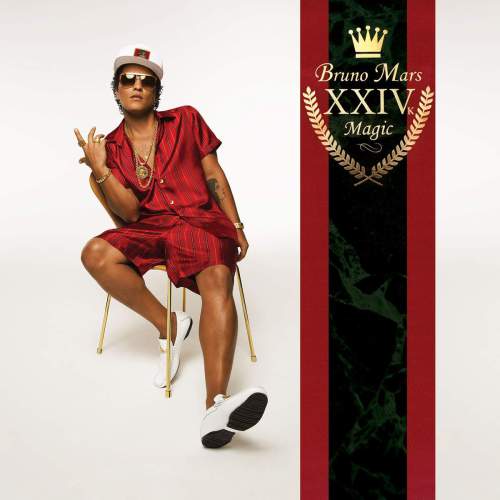
I have a confession to make: I like the new Bruno Mars album, 24K Magic. I like it a lot, actually. It’s no masterpiece, but it’s maybe the most pure, uncomplicated fun I’ve had with a record all year.
In the grand scheme of things, of course, that isn’t such a controversial statement. A lot of people like 24K Magic: it debuted at number 2 on the Billboard 200 when it was released last month, and the accompanying world tour sold over a million tickets less than 24 hours after they went on sale. A lot of people like Bruno Mars, too: the dude’s already performed at the Super Bowl twice, and he’s barely over 30 years old. But in today’s hyper-segmented pop music market, there’s a kind of shame that comes with admitting you like an artist with such mass appeal. Bruno Mars is the Starbucks pumpkin spice latte of music; by admitting I like him (or PSLs), I forfeit the air of aesthetic superiority that is the lifeblood of every hipster and amateur critic alike.
But hey, like all amateur critics and hipsters, I have a fragile ego, so let me try to explain myself. 24K Magic is a fun, hooky record, but it’s also a history lesson; and, as it turns out, making musical history lessons fun and hooky might just be Bruno Mars’ calling. Mars is a talented songwriter, singer, and (especially) performer, but his real brilliance is as a mimic: think back, for example, to his 2012 appearance on Saturday Night Live, when he became a human Pandora playlist with spot-on impersonations of everyone from Michael Jackson to Green Day. That skit was basically a microcosm for Mars’ whole schtick; his influences are as heterogeneous and easy to pick out as they come, from the Michael Jackson and James Brown moves he spent his early career pilfering to his more recent, post-“Uptown Funk” incarnation as a post-hip-hop Morris Day.
The beauty of 24K Magic is that its influences all sound fresh and contemporary, despite the fact that they’re of anywhere from 25 to 40 years vintage. The title track, for example, is pure Zapp, right down to the little synthesizer drop on the chorus (a direct quote from the beginning of 1982’s “I Can Make You Dance“). “Finesse” is straight out of the Bobby Brown/New Edition playbook. And the delightfully cheeky “Perm” is James Brown filtered through the aforementioned Morris Day and the Time. All of these sounds are perfectly viable for contemporary listeners; I should know, I listen to them pretty much exclusively every summer. But they’re all sorely missing from the current music landscape, and I for one am thrilled to see somebody bringing them back to the mainstream.
Of course, the typical critical backhand against this kind of “throwback” music is that it’s stultifying nostalgia, more interested in looking back at the past with misty eyes than in pushing things boldly forward. But I think the “history lesson” term I used earlier is more apropos. Bruno Mars’ take on ’80s and ’90s R&B never sounds stodgy or conservative; it lacks even the grumpy-young-man purism that is sometimes evident in Dam-Funk‘s work. Mars is clearly just having a blast, and making sure the listener does too; I guarantee that there’s a sizable segment of his audience that neither knows nor particularly cares that he isn’t doing anything Roger Troutman didn’t already do. Pop music is a young person’s game, and it is (for now, at least) inseparable from capitalism’s endless parade of novelty. There are, of course, plenty of obsessives out there willing to dig through its history–several of them either reading or writing for this very blog!–but the truth of the matter is, the only way to introduce most listeners to sounds from the past is to deliver them again in a shiny new package. 24K Magic is new, and it’s as shiny as the gold alloy from which it takes its name. And if it gets even a handful of millennials to do a little digging in their local record store’s R&B section, then that’s even better.

